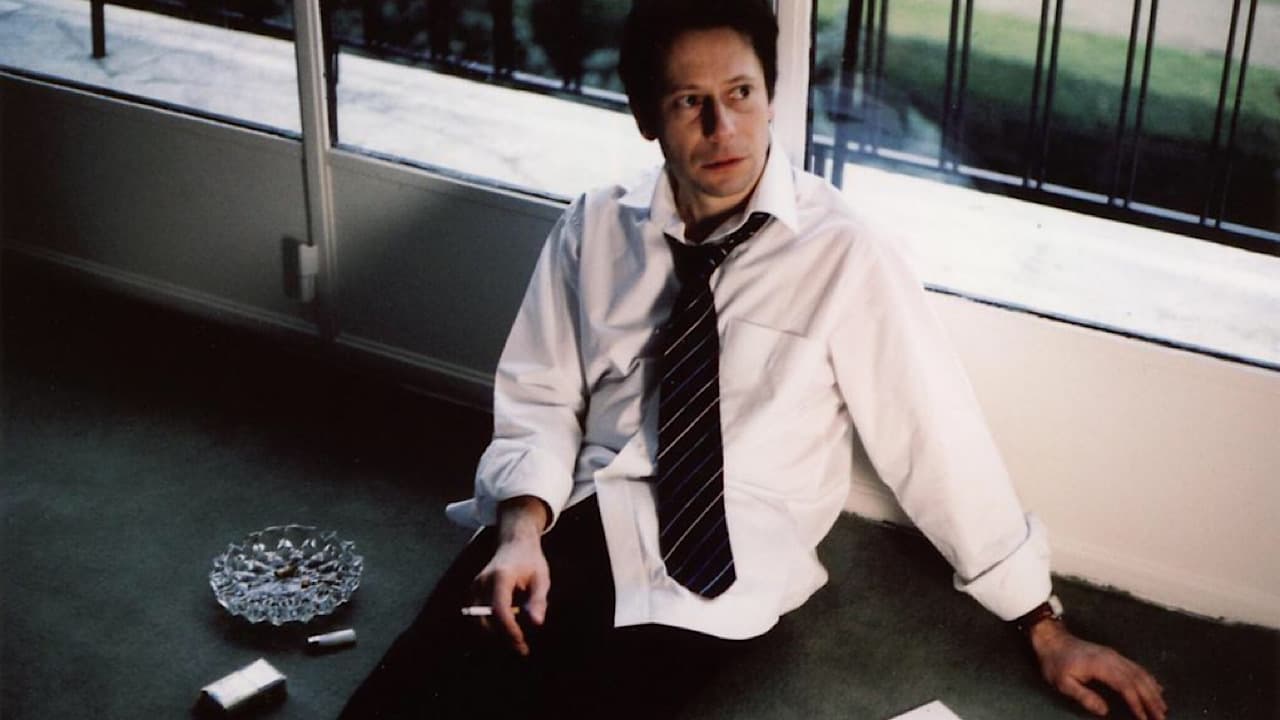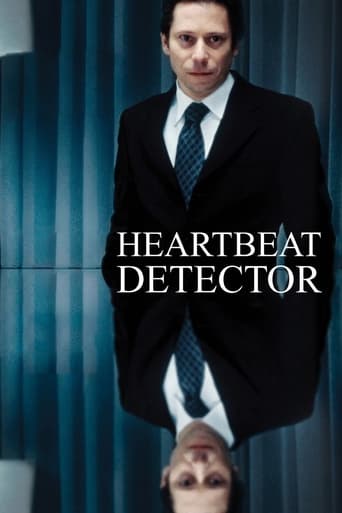



Great Film overall
The film makes a home in your brain and the only cure is to see it again.
View MoreThe acting in this movie is really good.
It is encouraging that the film ends so strongly.Otherwise, it wouldn't have been a particularly memorable film
View MoreNB: SPOILERS THROUGHOUT Neither the symptomatic alcoholism of despair apparently rife on the production line at SC Farb, the French branch of a German petrochemical company, nor the suicidal depression of it's boss merit more positive counselling remedies. Defective performance merits only elimination. This is the business of the firm's 'Human Resources' Department.Tasked with this soulless duty, Simon suffers a personal crisis when his official persecution of Just, the CEO of Farb, only brings him face-to-face with 'mon semblable, mon frere' in the form of the family and corporate guilt that has finally overwhelmed Just. Simon must unwittingly trace lineal descent from the Nazi past in the deadly ruthlessness of the managerialist expedients his own job demands. Thereafter he suffers nightmares, both sleeping and waking, that seem to expose a vast and unrelenting corporate attack on the integrity of human nature. Simon begins to realise that his inability to admit love or empathy for another is destroying his own closest relationship. Soulless techno music, which is the chosen relaxation of his professional colleagues, is designed to pound human sensibilities into mindless oblivion - the rhythmic tabula rasa which is the necessary conditioning for unquestioning de-personalized adherence to corporate doctrine. By contrast, it is shocking to experience the intense spirituality of the passionate and moving fado and flamenco performances elicited from some talented individuals at a 'works outing' organised by Simon. Ironically, this musical enterprise was merely intended by Simon as a false flag cover for his investigation of Just, who was once himself a greatly talented musician, and at one time sufficiently enlightened to encourage such personal endeavours amongst his staff. A recording of Just's own performance in the Schubert string quartet 'Death and the Maiden' is heard, which strikes a beautiful and sombre note in the midst of corporate cultural savagery. Simon finds that he cannot bring in the damning report his superiors expected. He diverges from corporate 'new-speak' to utter the truth: Just is not mad - he is tired. It has become obvious to Simon that Just is tired from years of repressing his sense of guilt - he is, in point of fact, finally coming to his senses. And where the conscience-stricken Just leads, Simon follows with relief.Notable is the aforementioned use of uplifting music in counterpoint to nihilistic rock. Also effective is the final reading from German engineering and managerial reports on the research and development of Nazi technology for the efficient mass extermination of human beings, that suddenly identifies such dishonest and perverted language as the origin of modern corporate group-think. The film is not a political thriller in the racy Costs-Gavraz mode, but more a brooding journey into the European Heart of Darkness; feelings of Revulsion, rather than Revolution, being the intended effect.
View MoreThis ship wreck of a movie has got to be one of the most boring, irritating and absurd films I've ever watched. It ranks up there with only a couple others that I almost walked out on many, many years ago.No plot, no character development, irritating music and camera angles, bombastic dialogs, idiotic sequences and pointless scenes that drag on and on and on....I'm a grown man with a keen appreciation for art in all its forms, and do not consider myself averse to artistic, profound, philosophical movies, quite the opposite. But this is none of that. As I painfully watched, boredom turned into outright anger at the thought of wasting two hours of my life with this rubbish. And believe me, I've been known to waste some time on silly past times! This is just too much. I'm almost embarrassed, no, worse, incensed that I sat through it. Do yourselves a favor and avoid this load of you-know-what at all cost.
View MoreThis is a truly awful film, devoid of any redeeming features.Throughout the film you are left wondering what is happening and more importantly why. Characters and scenes just appear with no context to the main story which is at best half baked.It is overlong - nearly 2 and half hours and in desperate need of a good editor who can trim it down and a good writer who can explain what the story is really about and...--SPOILER ALERT-- give it an ending, as it just fades away without wrapping any of the story up.Some may say this is intentional but it smacks of poor writing, editing and directing.
View MoreIn this complicated philosophical thriller and meditation on modern varieties of evil, Simon Kessler (Matthieu Amalric), who narrates (echoing the source book by François Emmanuel), is a corporate psychologist working in the "human resources" department of the French branch of SC Farb, a German petrochemical company. A high-ranking official, Karl Rose (Jean-Pierre Kalfon), assigns Kessler the delicate task of investigating the mental state of company CEO Matthias Just (Michael Lonsdale). Kessler meets Just on the pretense of working up a plan for employee musical groups; years ago Just himself was part of a string quartet made up of staff members. (At 77 Lonsdale is still impressive, immense; to see him and the brilliant Amalric, 43, play off one another is worth the price of admission.) Just appears to be coming apart, yet he seems tired rather than crazy, and there is nothing specific. But what Kessler discovers, in Just, in the company, in the past of some of the employees, and in himself, leads him to come apart himself.This is a cold, dark-suited world inhabited by expressionless but dangerous men and women who smile, but bite back. The cinematography is of a chilly beauty. Music is a powerful thematic element. Schubert is associated with Matthias Just. American-educated French musician Syd Matters composed for the film. To unwind, Kessler and colleagues go to raves and, dance wildly to techno, and come unglued. The strobe lights' flashing seems a metaphor for the dirty secrets peeking out of hiding. Music torments Monsieur Just. He has never recovered from the death of a child and he comes unglued listening to an old tape of the company quartet playing Schubert's 'Death and the Maiden' when Kessler visits his house. The calm of classical music seems false. Some of its master composers come from the land of the Nazis.Despite the cute English title, in French this film is called 'La question humaine,' 'The Human Question.' Klotz, whose partner Elizabeth Persival collaborated on the adaptation, is working in the same mode of Claire Denis in The Intruder/L'Intrus and Arnaud des Pallieres in 'Adieu,' films that focus up close on highly culpable individuals but consider vast social issues and historical wrongs which they explore in challengingly fractured ways but in a language that is visually and aurally rich. Denis' "hero" was associated with various illegalities, including illegal organ sales. Adieu considers questionable business practices and the repression of immigrants. Heartbeat Detector gestures meaningfully toward apparently French executives' relationship with the Shoah.A little over halfway through the film Just delivers his bombshell to Kessler. First he points out that he knows Karl Rose (not his real name; it was Kraus) is having him investigated. He points out that in the recent company overhaul that eliminated over half the employees, Kessler played a big role in deciding who was to be axed. Then he explains Rose/Kraus's actual origins.Letters and papers begin to be passed back and forth. Some of them are in the hands of Just, recuperating from a dubious "suicide" attempt. There is a close examination of a German "shipment" whose passengers never survived in which someone's father was closely involved. The euphemisms of Nazi extermination where people are "pieces" or "units" seem not so far from the language of corporate "restructuring." Has the mentality of the Third Reich reformatted itself in western European industrial society? As Kessler comes apart, he loses his protective jargon. His "investigation" which Just called "une machination" (a plot) organized by Karl Rose, has turned into a probing of the human condition and the tentacles of the twenty-first century have been traced back into the middle of the twentieth.At its best 'Heartbeat Detector'/'La question humaine,' which is a little long, is as challenging and haunting as L'Intrus and Adieu and even more powerful and contemporary. At certain moments it seems to be lecturing us, but it also finds time to be fractured and funny.Presented as part of the Rendez-Vous with French Cinema at Lincoln Center, New York, February 29-March 9, 2008. US distributor: New Yorker Films.
View More